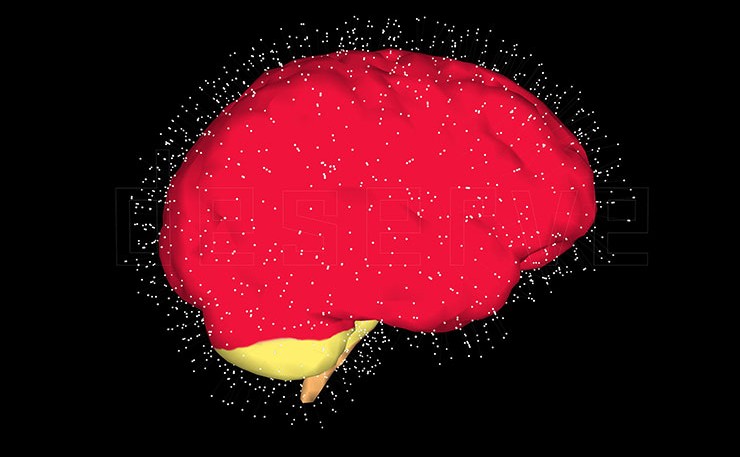Making language accessible is important, writes Dr Richard Hil. But what if we’re making it meaningless?
I’ve recently returned from a conference in drizzly Auckland titled ‘Social Movements, Resistance and Social Change’. It was a ripper. One of the best cerebral gatherings I’ve ever attended.
It reminded me of things that I’d perhaps forgotten: the incredibly detailed, rigorous and necessary work undertaken by academics; the power of thoughtful, informed assemblies of this sort; the chance to share ideas and talk about strategies and tactics.
Academics are too often maligned as crusty old farts, purveyors of verbal diarrhoea, or these days, robotic devotees of the corporate university. That’s mostly nonsense.
The fact is there are still great, committed progressive intellectuals residing in universities, who do important and socially useful work across disciplines, which includes critiquing the excesses of power and engaging students in discussions about a counter-future.
I met some outstanding academics at the conference, like Dr Cameron Jones (University of Auckland) whose knowledge of the antecedents of neoliberalism is breathtaking. This is knowledge accumulated over many years of careful reading, critical analysis and discussion.
In Cameron’s case, this has involved burrowing into the primary texts of Von Hayek and other economic libertarians of the Austrian School; appraising the inchoate ramblings of the “Chicago boys”, as well accessing numerous sociological, economic, political science and philosophical texts.
This is indispensable work borne of a commitment to a form of intellectualism that is nowadays often derided – that is: scholarship. Immersing oneself in scholarly pursuits – if done with due care and critical attention – is arduous labour carried out amid all the constraints of the corporate university. But the knowledge gained through such work contrasts, often starkly, with the superficiality that derives from a brief foray into Google-land.
These days too much opinion making is passed off as serious considered commentary when it’s anything but. The cobbling together of articles from Googled fragments, without due regard for context, detail and nuance is, I’m afraid to say, a sign of the times. Everyone, it seems, can be a “public commentator”, thanks to the wonders of cyberplace. Sadly, rigour has, in many quarters, been replaced by cerebral rigor mortis, serious analysis by opinion making, and detail by generalities.
I’ve heard some people say that we need to use language that is “accessible” and not too “academic”, which has a kernel of good sense, but which also invites stupefaction. And I’ve even been told by some to avoid any post-fixes like “ism” or “ology” as these merely complicate things too much. Why use chunky words when a colloquialism or dot-point will do?
Sure, few of us want to plough though turgid and jargon-laden prose, or the horrors of management speak (rightly trashed by Don Watson and others). But at the same time, we shouldn’t retreat into literary dark corners, or be too afraid of fat words and complexity.
Assuming the worst of our readers is merely to buy into anti-intellectualism that is so much part of the ‘triumph of the airheads’. The fact is that learning is a core part of everyday life; we can’t avoid it. But it’s what we learn that counts.
Neoliberal advocates like Von Hayek long ago insisted that a change to the world order would be achieved through a “war on ideas”. If progressives are to win this “war” then we need to know the historical context and content of ideas and to think hard about what informs our own extrapolations of the better life.
In this, we should avoid the silly binary of thinking/doing and recognise that effective action and forethought are indispensable partners.
Academics like Cameron Jones are dedicated scholar-activists who want their students to read and think, and to spread the critical word. Cameron also helps run a new progressive think tank in New Zealand, and is working with others on establishing a new research centre, and even a new progressive political party. So, to denigrate academics, as often happens these days, as boring eggheads or neoliberal operatives, is neither warranted nor accurate.
Which is not to let academics off the hook. Many have embodied the worst aspects of the neoliberal university and have sold their souls for the quiet life or more commonly, promotion. But for every docile subject there are plenty of good, radical, committed folk who are desperately needed on the progressive side of politics.
We need the detailed and thorough intellectual work they do, if only to substantiate our surface arguments. And we also need them to support our activist causes, which many of them do.
Think of Noam Chomsky and all those other progressive academics in the US, Canada and other parts of the world. And while we’re at it, think of our own: Ian Lowe, Stuart Rees, Jo Camilleri, Bill Mitchell, Greg Marsden, to name but a very few – all great scholars and activists, all vital to the progressive cause.
Donate To New Matilda
New Matilda is a small, independent media outlet. We survive through reader contributions, and never losing a lawsuit. If you got something from this article, giving something back helps us to continue speaking truth to power. Every little bit counts.






